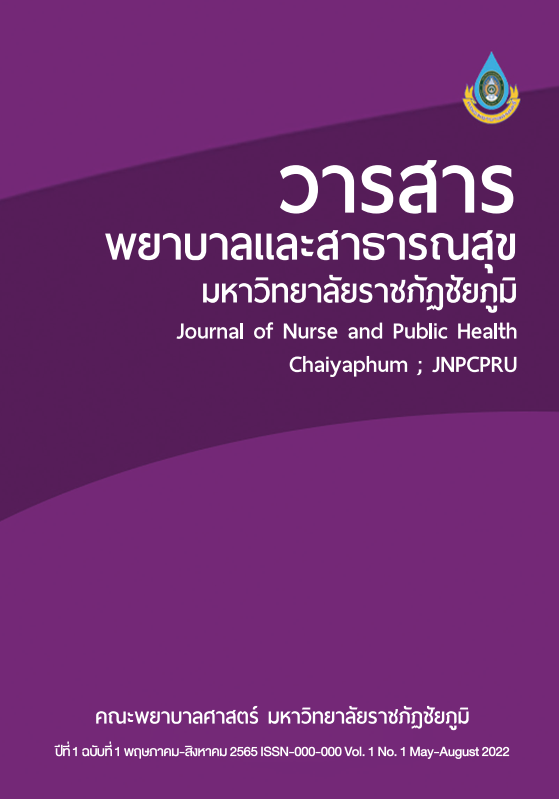Palliative Care with the Buddhism traditions in Semi-Urban Context
Main Article Content
Abstract
According to the meaning in the dictionary of the Royal Institute, support means be careful, to support maintenance, and be will cherished. Palliative Care: Therefore, it means taking care of patients who cannot be cured, and it is estimated to have less than 1 year of life remaining cautiously. This academic article aims to explain palliative care with the Buddhism traditions in Semi-Urban context to have a good quality of life according to the Buddhist way (Buddhism). Palliative Care is based on Dharma to understand things called the trinity. There are tree categories: impermanent (absolute impermanence), every prison (suffering) and soulless (non-self) where nurses play a role in caring. A nurse is an advocate for patients and family confident in palliative care and takes the heart of caring for the sick and those who are leaving peacefully.
Article Details

This work is licensed under a Creative Commons Attribution-NonCommercial 4.0 International License.
References
Department of Medical Services, Ministry of Public Health. Handbook of palliative and end-of-life care (for medical personnel). Nonthaburi: Printed at the Veterans Affairs Organization. under royal patronage; 2017. (in Thai).
Palliative Care Network , Conservation Center, Department of Medicine. Assessment Manual Self-standard quality of palliative care for terminally ill patients. Khon Kaen: International Archives; 2018. (in Thai).
Improving access to medicines in the South-East Asia Region: Progress, challenges, priorities. New Delhi: World Health Organization, Regional Office for South-East Asia Licence: CC BYNC-SA 3.0 IGO ; 2017.
National Health Office . People’s Guide Palliative care for terminally ill patients (Palliative Care) Revised edition. Bangkok: Pimsiri Pattana Co., Ltd; 2018. (in Thai).
Worldwide Palliative Care Alliance. Global atlas of palliative care at the end of life. Geneva: World Health Organization; 2014.
World Health Organization. Planning and implementing palliative care services. A guide for programme managers. Geneva: World Health Organization; 2016.
Medical Department. The Guideline of Palliative Care. Medical Department Ministry of Public Health; 2014. (in Thai).
WHO Definition of Palliative Care. Palliative Care: symptom management and end-oflife care. WHO Publications; 2012.
Artsanthia, J., Barbara E.M., Chaiphibalsarisdi, P. Nitayasuddhi D. & Triamchaisri S.K. (2011). Exploring the palliative care needs ofpeople living in Thailand with End stagerenal disease: A pilot study.Journal of hospice & palliative care nursing, 13(6):403-410.
Phra Brahmagunabhorn (P.A. Payutto). Trinity Anicchata Dukkhata Anatta . Bangkok: Center for disseminating scriptures and Buddhist books; 2011. (in Thai).
Tantiwong, A. Phitthayaphan, P Suntharapha, S. Caring for terminally ill patients. 12thed : Printed at H.T.P Press Co., Ltd; 2015. (in Thai).
Sukrung, K. The final happiness at the destination : Facing death peacefully. 5thed. Bangkok: Samlada Partnership; 2017. (in Thai).


